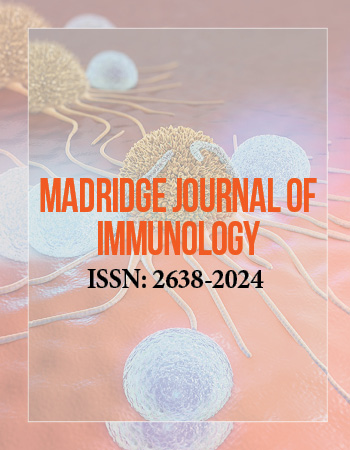International Conference on Immunology and Immunotechnology
November 1-3, 2017 Barcelona, Spain
Berberine Regulates IL-17+Gamma Delta T Cells Mediated Immune Response Inimiquimod-Induced Mice through Toll-like Receptor
Beijing Hospital of Traditional Chinese Medicine, Capital Medical University, Beijing Institute of Traditional Chinese Medicine, China
Berberine (BBR) is an isoquinoline alkaloid extracted from numerous plants of the general Berberis and Coptis. BBR has been shown to exhibit antimicrobial, ant oxidation, antitumor, antidiabetic, and even neuroprotective effects. Upon stimulation, dermal γδT cells are quickly activated to release IL-17 and other proinflammatory cytokines. Meanwhile, they also expand more to enhance acute immune response. This study aimed to demonstrate the immunoregulation effect of BBR in inflammatory process of gamma delta T cells and explore the mechanism further. Imiquimod (IMQ) and R848 both were Toll-like receptor7, 8 agonist. We employed an IMQ-induced psoriasis-like mouse model to investigate the effect of BBR in γδT cell mediated inflammation. Keratinocytes proliferation and differentiation of psoriasis-like lesions was assessed by histology, circulating levels of T cells were assessed by flowcytometry and cytokines by bead-based immunoassay. The percentage of CD3+ T cells were elevated in the spleen and skin. However, the percentage of CCR6+gamma delta T cells was reduced. Jak/Stat3 pathway was assessed by Western blotting. Administration of BBR ameliorated IMQ-induced keratinocyte proliferation and inhibited IL-17A related inflammation. In vitro, BBR directly inhibited IL-17 secretion in a dose-dependent manner. It has synergy with toll-like receptors to promote γδT cells to transform IFN-γ producing cells and inhibited Il-17 producing phenotypic transformation.
Biography:
Ting-Ting Di was born in January 1987, China. She received PhD from Beijing University of Chinese Medicine, Beijing, China. Now she mainly engaged in studies of the effect of traditional Chinese medicine on psoriasis, working at Beijing Hospital of Traditional Chinese Medicine, affiliated with Capital Medical University, Beijing Institute of Traditional Chinese Medicine, Beijing Key Laboratory of Clinic and Basic Research with Traditional Chinese Medicine on psoriasis, Beijing, China.


